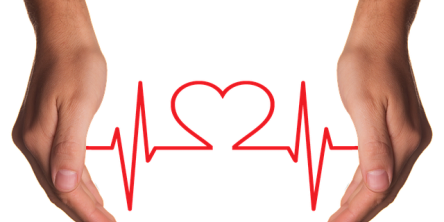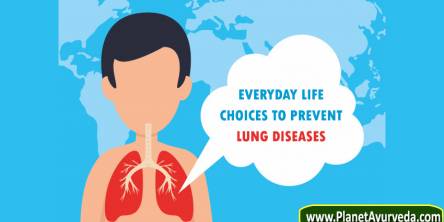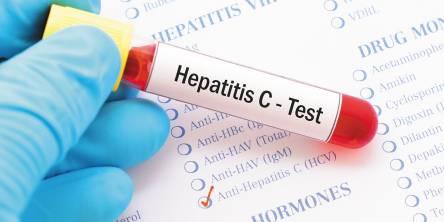17 Ways to Overcome Chronic Pain from Crohn's Disease

It's a good idea to discuss Crohn's disease with your doctor if you experience pain. Crohn's disease frequently causes pain, but there are ways to manage it.
Your only indication that your Crohn's disease is becoming worse may be pain. If you have pain, it's crucial to let your doctor know because it could indicate that you require more aggressive treatment.
Everybody manages pain differently. The specifics of your Crohn's disease may determine your best course of action. Your doctor will work with you to choose the best course of action.
Several options are:
1. Non-opioid analgesics
Except if you have underlying liver problems, acetaminophen use is safe when you have Crohn's disease. You are permitted to take 4,000 mg each day. You shouldn't take more than 3,000 mg each day if you are older.
2. Tricyclic antidepressants and selective norepinephrine inhibitors (SNRIs)
These medications affect the central nervous system. SNRIs and tricyclic antidepressants can alter your gut flora in a positive way. This may lessen the messages that your brain receives from pain and reduce stress. Tricyclic antidepressants, even in low doses, can lessen the severity of your pain from Crohn's disease.
3. Anticonvulsants
Anticonvulsants known as gabapentinoids can stop your spinal cord from sending pain signals. They may also increase the release of noradrenaline, a hormone that aids with pain relief. To determine how well these medications can relieve stomach discomfort, experts are still researching them.
4. Anticholinergics/antispasmodics
These medications can help in the interim if you have Crohn's disease and are working toward remission. If other medical treatments fail to relieve the discomfort, they may be able to.
5. Opioids
These medications can ease intestinal pain. They may also stop your brain from sending pain signals. However, abusing opioids excessively runs the risk of making Crohn's disease and the associated discomfort worse. Ask your pain doctor if that’s your option.
6. Stop smoking
Smoking can make Crohn's disease worse. Quitting smoking will benefit both your general health and the health of your digestive system. Quitting may help your condition so much that you won't need to take corticosteroids or other immunosuppressive medications any longer.
7. Exercise
According to some doctors, frequent physical activity can help Crohn's disease symptoms by reducing stress. You'll feel better physically overall if you exercise more, which can assist with Crohn's symptoms.
8. Nutrition
Certain meals may aggravate your Crohn's condition. They may result in gas, bloating, cramps, or discomfort. Eat less of the meals that make you uncomfortable or unwell. Each person may experience this differently.
9. Medical marijuana
Medical marijuana may help some persons with Crohn's disease-related pain by reducing their symptoms. A few studies indicate that marijuana may be useful for treating pain, nausea, appetite loss, and sleep problems.
But the actual reason why marijuana reduces this kind of pain is unknown to doctors. Additional studies could clarify the connection.
Consult your doctor if you wish to try marijuana for your Crohn's symptoms. They can assist you in locating a reputable grower of medical marijuana.
10. Cognitive behavioral therapy and mindfulness-based therapy
You can learn how to react to your thoughts, feelings, and behaviors in a healthy way with these therapies. Meditation and breathing practices are part of mindfulness. This can aid in the treatment of Crohn's disease-related chronic pain and probable anxiety or depressive symptoms.
11. Yoga and breathing
Relaxation can result from deep yoga breathing. By lowering your stress, you might be able to alleviate some of the discomfort brought on by Crohn's.
12. Acceptance and commitment therapy
You'll learn to accept and commit to altering your behavior for the better through this technique. This can lessen stress-related Crohn's disease pain.
13. Biofeedback
You can calm your muscles and lower your heart rate with biofeedback. You may be able to better manage stress as a result of this. According to a study, biofeedback can help persons with Crohn's disease experience less pain in addition to meditation, education, and cognitive coping techniques.
14. Hypnotherapy
In this form of therapy, a guide induces a trance-like state in you. According to some specialists, hypnotherapy may be beneficial if you suffer from Crohn's-related abdominal pain.
15. Transcutaneous electrical nerve stimulation (TENS)
Electrodes that cling to your skin are used in this process. They transmit electricity to suppress pain signals in specific body parts. Your intestines' Crohn's disease pain may be relieved by doing this.
16. Therapeutic endoscopy
Strictures can be painful in people with Crohn's. These are spots in your intestines where scar tissue from inflammation has caused the narrowing. They might cause a blockage. Endoscopic balloon dilation is a therapeutic endoscopy technique that can be used to treat these.
17. Surgery
If you have a stricture, your doctor might advise surgery depending on how severe, where, and how big it is. Following surgery, adhesions could form. These are scar tissue bands. If they hurt, the only way to remove them is through surgery.
Similar Articles
Discover 5 effective at-home remedies to combat winter diseases. From flu to colds, learn how to stay healthy and resilient during the chilly season.
Clickbait articles. Wild conspiracies. Misheard conversations. All of these things can lead to misinformation. Misinformation can become incredibly dangerous. Not only does it cause fear, but it can influence decision-making. People have allowed lies to influence their healthcare and voting habits. Not only this, but it can create prejudices that can ruin lives.
Conditions like Parkinson's, essential tremor, and dystonia are on the rise, affecting people of all ages and backgrounds. From subtle tremors to major coordination issues, these disorders can greatly affect daily life. Understanding their causes, symptoms, and treatments helps us detect and manage them early, improving overall quality of life.
When it comes to personal hygiene, ears aren’t usually something people tend to worry about. You may give them a quick rinse while in the shower, and then not think twice about it, that is until they start bothering you. Ears are generally thought of as self-cleaning, as earwax tends to soften on its own and not build up.
Hardly anyone is ever prepared for death, even if it’s not unexpected. Unfortunately, most of the leading causes of death in Illinois and all over the United States are unexpected. On the other hand, most are also preventable. Here’s a look at the top five leading causes of death in Illinois.
Cancer is diagnosed every two minutes in the UK, a word that instills dread and evokes fear and worry. Treating cancer can often be a rollercoaster.
The COVID19 vaccine supply chain has a decisive role to play in enabling efficient vaccination to people. But, the current supply chains are broken and diminished in many cases, posing challenges to effective vaccine distribution.
Lungs are usually taken for granted by us however they keep us well and alive. Most of us prioritize getting healthier and the health of lungs rarely crosses our minds. Now it’s the need of the time that we change it! The rate of lung diseases and respiratory ailments is much more in number than we assume.
Hepatitis is an inflammatory condition of the liver that can cause severe health problems if left untreated. There are different types of hepatitis, and each has its specific causes, symptoms, and treatment options.









